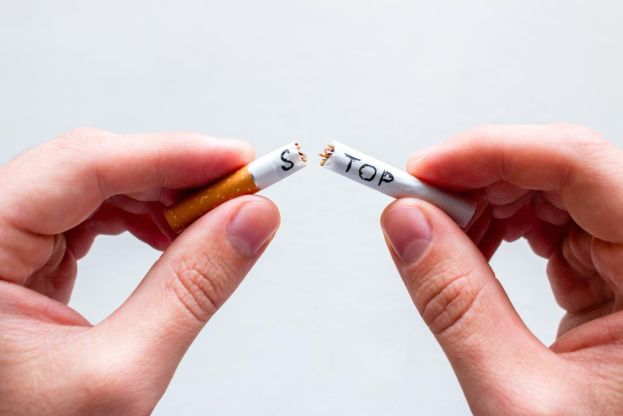
This can result from impairment in school, work, social, recreational or other important areas of function .Once an individual recognizes the negative impact of a substance on their life, a wide range of treatment options is available. Treatment options for addiction depend on several factors, including the type of addictive disorder, the length and severity of use, and its effects on the individual.
A doctor will also treat or refer for treatment any physical complications that have developed, such as liver disease in a person with alcohol use disorder or respiratory issues in people with an addiction to substances which have been smoked. Several treatment options are available, and most people experiencing addiction will receive a combination of approaches. None of the treatments for addictive disorders work for every person. Common interventions might involve a combination of inpatient and outpatient programs, psychological counseling, medication, therapies etc.
How to diagnose Substance Use Disorder?
The first step to diagnosing a drug addiction is recognizing the problem and wanting help. This initial step may start with an intervention from friends or loved ones. Once someone decides to seek help for addiction, the next steps include:
- Complete exam by a healthcare provider.
- Individualized treatment, either inpatient or outpatient.
Treatment Methods for Drug Addiction
Addiction treatment is not one-size-fits-all. Treatments may vary based on your needs. You can choose the treatment that works best for you based on the substance you’re abusing, the level of care you need, your personal mental health needs, or what health care options you can afford. Here are some of the most common addiction treatments that have set patients on a successful path to recovery.
Detoxification
Medically-assisted detox allows you to rid your body of addictive substances in a safe environment. This is beneficial because sometimes substance withdrawal can cause unpleasant or even life-threatening physical symptoms. Because detox does not treat the underlying behavioral causes of the addiction, it is typically used in combination with other therapies.
![]()
Medication
Medication may be part of your treatment plan. Your care team figures out the best medications for you. Medication can play an important role in recovery when combined with behavioral therapies. Certain medications can be used to reduce cravings, improve mood, and decrease addictive behaviors. If you or a loved one are struggling with an addiction, you don’t need to fight the battle alone. Talk to a medical professional. There are successful treatments available that can help you overcome your addiction.
Cognitive Behavioral Therapy
According to American Addiction Centers, Cognitive Behavioral Therapy (CBT) is a valuable treatment tool because it can be used for many different types of addiction including, but not limited to, food addiction, alcohol addiction, and prescription drug addiction. Not only can CBT help you recognize your unhealthy behavioral patterns, but it can also help you learn to identify triggers and develop coping skills. CBT can be combined with other therapeutic techniques as well.
Self-help groups
These may help the recovering individual meet others with the same addictive disorder which often boosts motivation and reduces feelings of isolation. They can also serve as a useful source of education, community, and information. People who are struggle with other types of addiction can find out about self-help groups in their community either by an internet search or by asking a doctor or nurse for information.
Is treatment for drug addiction inpatient or outpatient?
Both inpatient and outpatient treatment plans are available, depending on your needs. Treatment typically involves group therapy sessions that occur weekly for three months to a year. Inpatient therapy can include Hospitalization or Therapeutic communities or sober houses, which are tightly controlled, drug-free environments.
How to prevent substance use disorder?
Preventing drug addiction starts with education. Education in schools, communities and families helps prevent misusing a substance for the first time. Other ways to prevent substance use disorder:
- Don’t try illegal drugs, even one time.
- Follow instructions for prescription medications. Don’t ever take more than instructed. Opioid addiction, for instance, can start after just five days.
- Dispose of unused prescriptions promptly to reduce risks of misuse by others.
Can addiction reoccur?
Substance use disorder is a “relapsing disease.” People who are in recovery from this disease have a higher chance of using drugs again. Recurrence can happen even years after you last took drugs. Because of the possibility of relapse, you need ongoing treatment. Your healthcare provider should review your treatment plan with you and change it based on your changing needs. If you have a problem with prescription drugs, including opioids, inform your healthcare providers. They can help you find other options to manage pain.
Conclusion
Substance use disorder can kill. If left untreated, you could die from overdose or engaging in dangerous behavior under the influence of drugs. Treatment can help people recover from addiction and prevent serious consequences. Drug addiction is a brain disease. Drugs affect your brain, including your decision-making ability. These changes make it hard to stop taking drugs, even if you want to. If you or a loved one has a substance use disorder, talk to qualified and professional doctors. They can help guide you to the treatment you need. Usually, a combination of medication and ongoing therapy helps people recover from addiction and get back to their lives.
from latest-news - SUCH TV https://ift.tt/vyJ9mzg

0 Comments